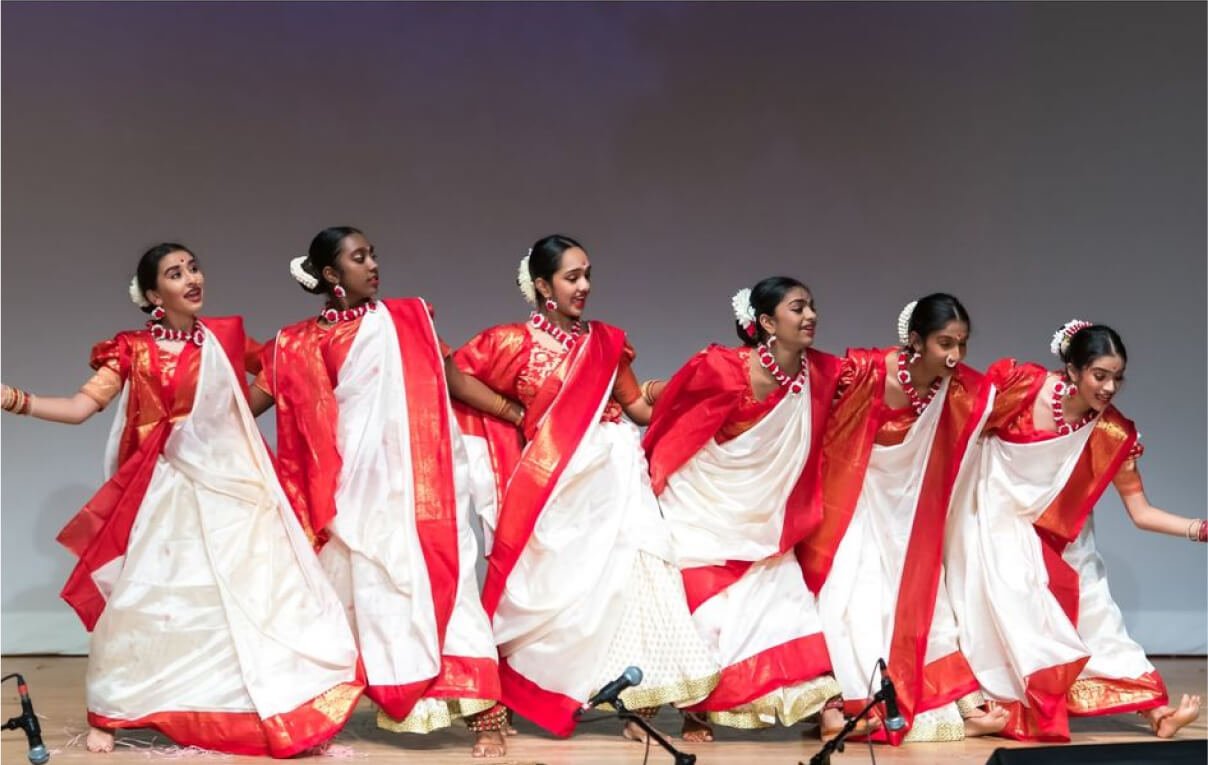folk dance
A folk dance of Assam's tea tribes, performed during harvest and festivals, featuring girls as dancers and men as musicians.

Jhumur is a traditional folk dance performed by the tea-tribal communities of Assam, primarily during the harvest season and on festive occasions. This vibrant dance, embraced in West Bengal, Odisha, and Jharkhand, extends beyond Assam as well. While the principal dancers are women, male performers maintain the rhythm and vocals with various traditional instruments, creating a harmonious blend of movement and sound.
The dance is an essential part of festivals like Karam Puja and Tushu Puja, significant events for the tea tribes. These celebrations last for an entire week, with people staying up late into the night to honor and worship the gods. The festivities culminate in the cleaning and decoration of homes, welcoming the gods, and performing the Jhumur dance as celebration and reverence.
Baskets used as a prop to perform the Jhumur folk dance.
Jhumur expresses the essence of both joy and sorrow from everyday life. Female dancers form a line or a circle, linking arms around each other’s waists, moving gracefully in synchronized, swaying motions. Their movements, coupled with gentle footwork, mirror the rhythm of their lives and the ebb and flow of their emotions. Male musicians accompany them, playing instruments such as the Madal, Dhol, Flute, Shehnai, Bansi (another type of flute), Dhak, and a pair of Taal (cymbals). The music builds a connection between the dancers and the onlookers, enhancing the beauty and energy of the performance.
NSDA students performing Jhumur on stage.
The vibrant costumes of the dancers, usually comprise brightly colored saris and minimal but striking ornaments, add to the visual appeal of the dance. Male musicians wear traditional attire like dhotis and kurtas, completing the picture of a culturally rich performance.
The dance’s synchronized movements reflect the unity and cooperative spirit of the community, and the lively music enhances the communal atmosphere. Jhumur is not only a celebration of the harvest but also an acknowledgment of the cycles of life intertwined with nature and tradition.